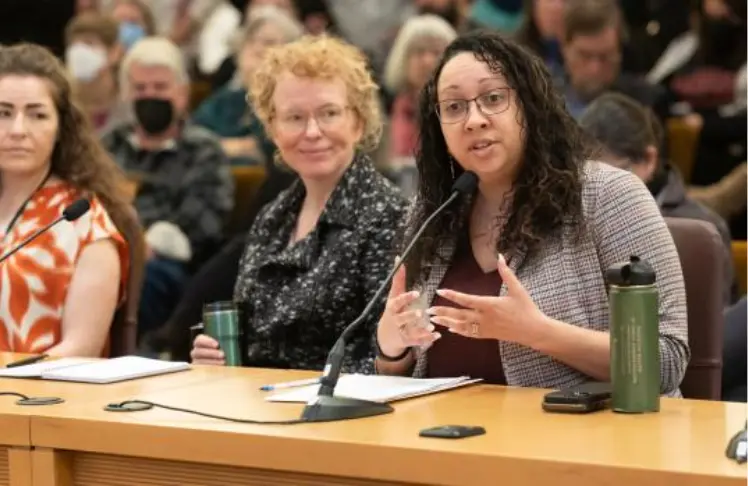
Last week, the Multnomah County Board of Commissioners, in a unanimous vote, declared a 90-day state of emergency in response to the escalating public health and safety crisis driven by the surge in fentanyl-related incidents. This resolution aligns with the emergency exemption authorized by Chair Jessica Vega Pederson, facilitating the rapid procurement of goods and services for the ongoing efforts.
This decision follows similar actions by Oregon Governor Tina Kotek and Portland Mayor Ted Wheeler, collectively enabling swift resource deployment to address critical community needs linked to illicit fentanyl use. Chair Vega Pederson initiated the call for Board action during a joint press conference on Jan. 30, underscoring the urgency of the situation.
The joint declarations stem from a recommendation by the Portland Central City Task Force, unveiled at the Oregon Business Leadership Summit late last year. To ensure coordinated efforts, the State, County, and City have established a unified command team, focusing on a collaborative and streamlined approach to combat the fentanyl crisis.
While state and city initiatives concentrate on central city neighborhoods in Portland, Pederson and Health Department Director Rachael Banks emphasize that the County’s efforts extend across all neighborhoods to address the widespread suffering and overdoses.
Multnomah County’s strategy encompasses preventing fentanyl exposure and use, reducing harm for substance users, and enhancing access to outreach, treatment, recovery, and housing services.
“With this declaration comes new opportunities for urgency, for partnership, and for a response that meets the needs of our entire community,” said Pederson. “We also know that every approach to this work needs to address the inequity, trauma, and despair that drives much of the substance use in our communities.”
Over the 90-day period, the County aims to establish new pathways for long-term coordination in response to the fentanyl crisis. The urgency is underscored by a staggering 533% increase in synthetic opioid-related overdose deaths in Multnomah County from 2018 to 2022.
Banks stressed the need for a comprehensive public health approach, involving clinical, community-based, and corrections services, alongside expertise in behavioral health, criminal justice, and public health.
“The 90-day emergency provides an opportunity for collaboration in a specific geographic area and allows us to partner with additional programs that have proven success and track records to work across the four areas of prevention, harm reduction, harm reduction, and recovery,” Banks said.
During this period, the Health Department will launch public education campaigns focusing on fentanyl risks, particularly among young people, and destigmatizing recovery. Naloxone distribution and training will be expanded, and outreach providers, mental healthcare services, and harm reduction efforts will see increased visibility and coordination.
The unified command structure, with former Health Officer Dr. Jennifer Vines serving as Multnomah County’s Incident Commander, has raised questions among some commissioners about the emergency’s downtown Portland focus. However, Pederson clarified that while the unified command targets central city neighborhoods, the Health Department’s plan spans all of Multnomah County.
Commissioner Sharon Meieran voiced concerns about specific goals and outcomes, but Chair Vega Pederson and Banks assured that the 90-day declaration aims for a visible improvement in the fentanyl crisis, with measurable and timely goals developed by the unified command team.
Despite skepticism, the emergency declaration garnered support from commissioners acknowledging the need for increased resources, interventions, and coordination.
Commissioner Jesse Beason acknowledged, “Fentanyl is the fire at our feet, and this is the right step and the right direction.” Commissioner Julia Brim-Edwards emphasized the impact of fentanyl on lives across all neighborhoods, and Commissioner Lori Stegmann praised the long-overdue collaboration between the County, State, and City.
“It is only together as one County and side-by-side with our partners that we can address this emergency with the urgency and the coordination it deserves,” said Pederson about the importance of having a unified front.















